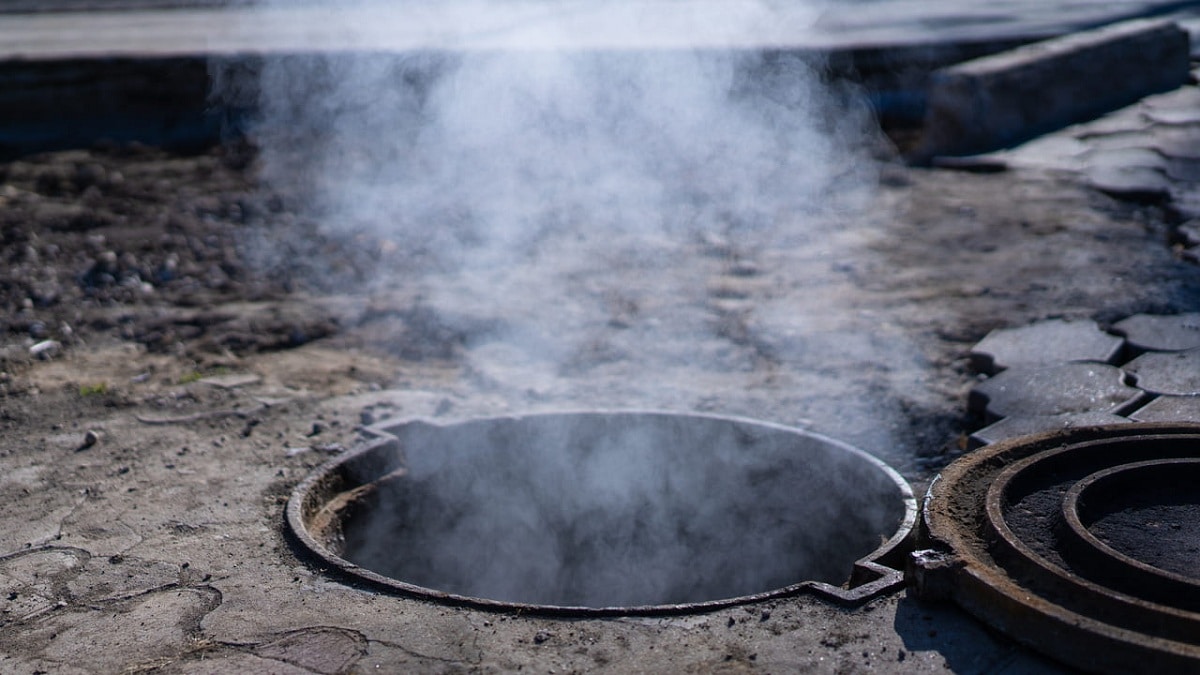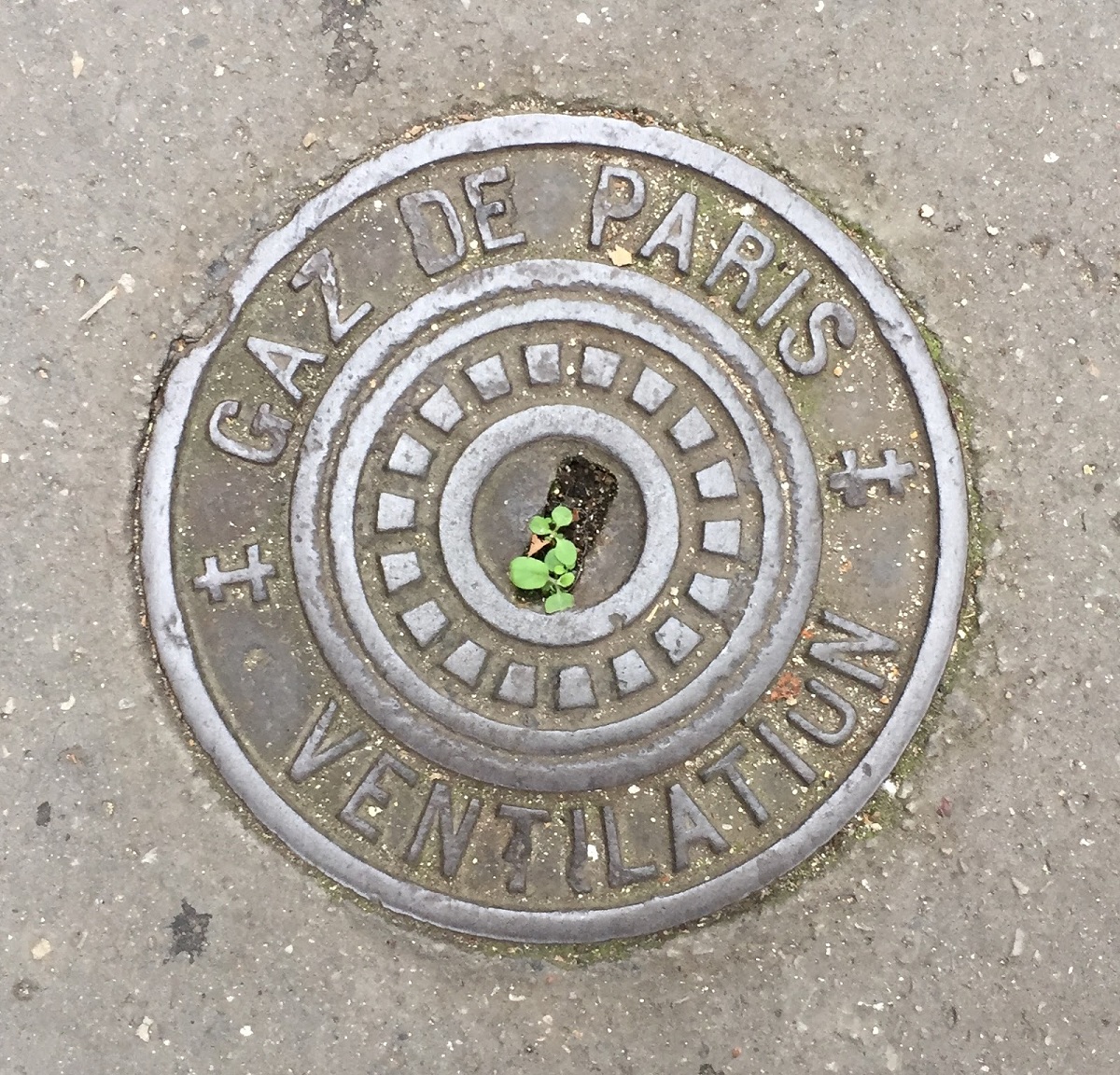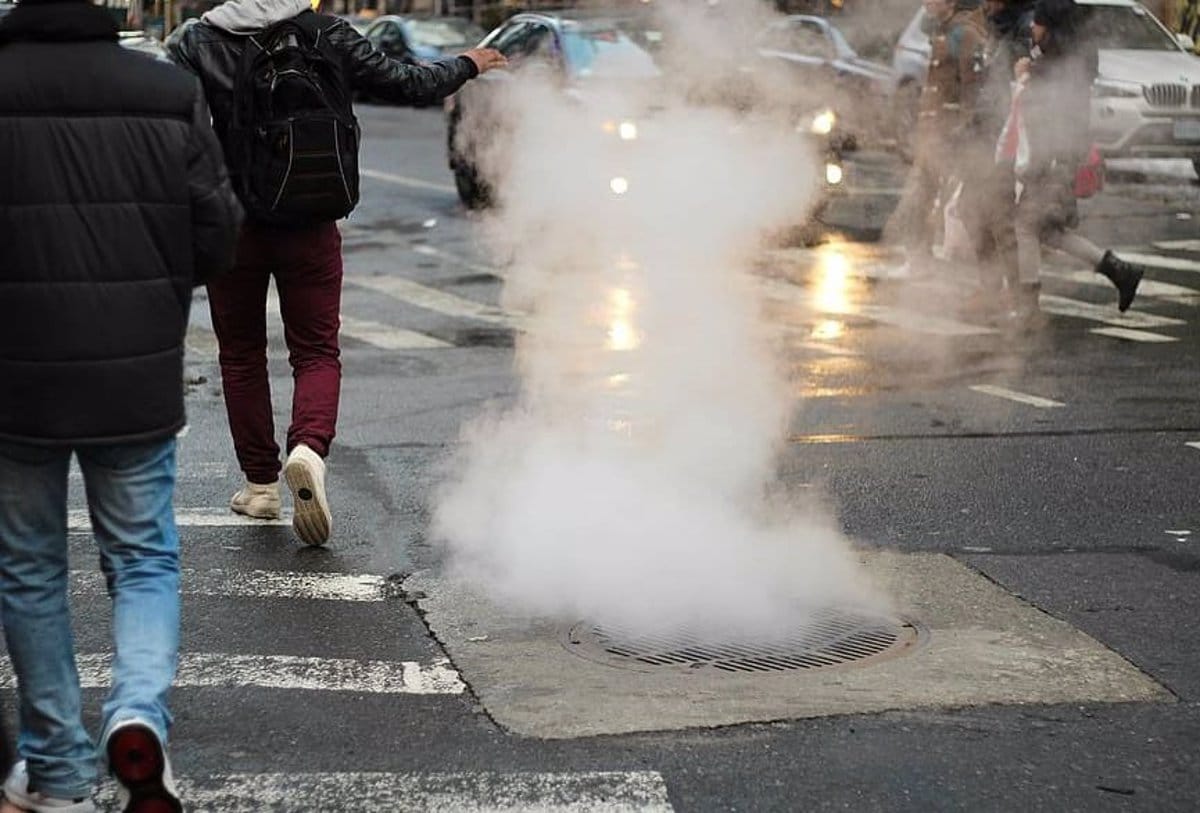
It is possible that the area where you live may have bad odors that come from the sewers. This odor is generated by hydrogen sulfide. It is also known by the name of them sewer and usually smells like rotten eggs. It is generated in wastewater treatment plants and in the sewage system. It is usually extremely toxic to humans.
Therefore, we are going to dedicate this article to tell you everything you need to know about hydrogen sulfide, its origin and characteristics.
What is hydrogen sulfide

If you get a complaint about odors in your environment, it is likely hydrogen sulfide or the more well-known "sewer gas." If you smell rotten eggs near or at home, most likely hydrogen sulfide (H2S). H2S is produced in sewage treatment plants and sewage systems. Also known as "sewage gas", it is very toxic to humans.
The presence of hydrogen sulfide in sewers is generally discovered through complaints from close neighbors who have odor problems. Hydrogen sulfide is formed by biological reactions in sewer systems or wastewater treatment plants. H2S is produced by anaerobic (anaerobic) fermentation of organic matter present in wastewater.
In the pipeline, if there is no oxygen, the microorganisms will eat and produce hydrogen sulfide, with the typical smell of rotten eggs. This is called sepsis and it is the cause of hydrogen sulfide and the stench that goes with it.
Is it harmful to humans?

Hydrogen Sulfide is a colorless, harmful gas that occurs in drains and sewers where there is no oxygen under certain conditions (called anaerobic conditions or corrosive conditions). Has an adverse effect on health. It is very irritating to the mucous membranes of the eyes and respiratory tract.
Above a certain concentration, hydrogen sulfide will anesthetize the olfactory nerve, making it "disappear" and making it completely undetectable. So H2S can become a problem when you least expect it. In adults, 300 ppm (parts per million) is fatal. Under certain conditions, in a confined space, Hydrogen Sulfide can be instantly fatal.
At a concentration close to 150 ppm, the sense of smell quickly becomes fatigued and the characteristic odor turns into a mild sweetness and then disappears completely. In its pure state, hydrogen sulfide can easily burn to produce a light blue flame. In other words, any leak that occurs can cause a fire.
If it is not pure, but mixed with air (under normal circumstances causing damage to the environment), it will become an explosive substance. Explosive mixtures can be formed in a wide range of concentrations (4,5% to 45,5% in air). The autoignition temperature, that is, the temperature at which the gas can burn even without an external source, is 250 ° C.
Hydrogen sulfide is found in water, oil, lubricants, and hydrocarbons (oil, naphtha, etc.). It must be remembered that the solubility of a gas in any solvent increases with pressure.
Dangers of hydrogen sulfide

In addition to emitting a unique unpleasant odor, a large amount of H2S is irritating and is especially toxic when the concentration is very high in a confined space. Water treatment company personnel working in confined spaces are particularly vulnerable to this serious hazard. It is the responsibility of top management to protect workers from the hazards of hydrogen sulfide.
Let's analyze what are the different levels of danger of hydrogen sulfide:
- It is a toxic gas- The poison of hydrogen sulfide has a broad spectrum. It attacks and paralyzes the nervous system and blocks cellular respiration. In high concentrations, a single inhalation can be fatal.
- It is an explosive gas: it is extremely flammable. Forms explosive mixtures with air. Contact with oxidizing products can cause fires and explosions.
- It's unpredictable: it is a harmful gas and is heavier than air. Therefore, it can accumulate in the lower parts of buildings and pumping stations or treatment plants. They form pockets in stagnant sewage and release lethal amounts of gas when such sewage is displaced due to the flow of pipes. Paralyzing in the olfactory prevents you from carrying out the natural protection of the body against gas.
How to fight this gas
One of the characteristics of hydrogen sulfide is that it corrodes sewer structures and wastewater treatment plants. In the hot, humid environment of the sewer system, H2S will oxidize to sulfuric acid. This sulfuric acid is corrosive and will corrode wastewater and wastewater treatment plants.
Erosion can be present on concrete, copper, steel, and silver in processing tanks, buildings, and electrical equipment. If no precautions are taken, Pipes that are eventually exposed to this corrosion can break. Corrosion particularly affects submerged parts of drainage pipes or structures in sewage treatment plants.
The rate of corrosion depends on the amount of H2S formed and the level of preventive treatment. Now it is possible to avoid the typical rotten egg smell in the sewage treatment plants or sewage systems of our cities and municipalities.
Yara created YaraNutriox ™, a process to prevent contamination caused by oxygen deprivation in sewer pipes or wastewater treatment plants. YaraNutriox ™ is Yara's unique nitrate blend, which has been tested against hydrogen sulfide in hundreds of locations around the world. Cities like New York, Paris, Cologne and Montreal they have YaraNutriox ™ to process the gas.
I hope that with this information you can learn more about hydrogen sulfide and why it can be dangerous for humans.